March Recap
In case you missed it you can find last month's newsletter here: march newsletter
march bird nest spotlight & member submissions (bird nests)
Last month's activity/theme was finding bird nests.
I'll be honest I'm probably not the best at IDing nests so some of these are educated guesses.
First up Laya spotted a nest walking along Thompson Creek in San Jose. I believe this is most likely the nest of a red-tailed hawk (Buteo jamaicensis) based on the size and location. It's also possibly a drey (squirrel nest) but I think red-tailed hawk is most likely.
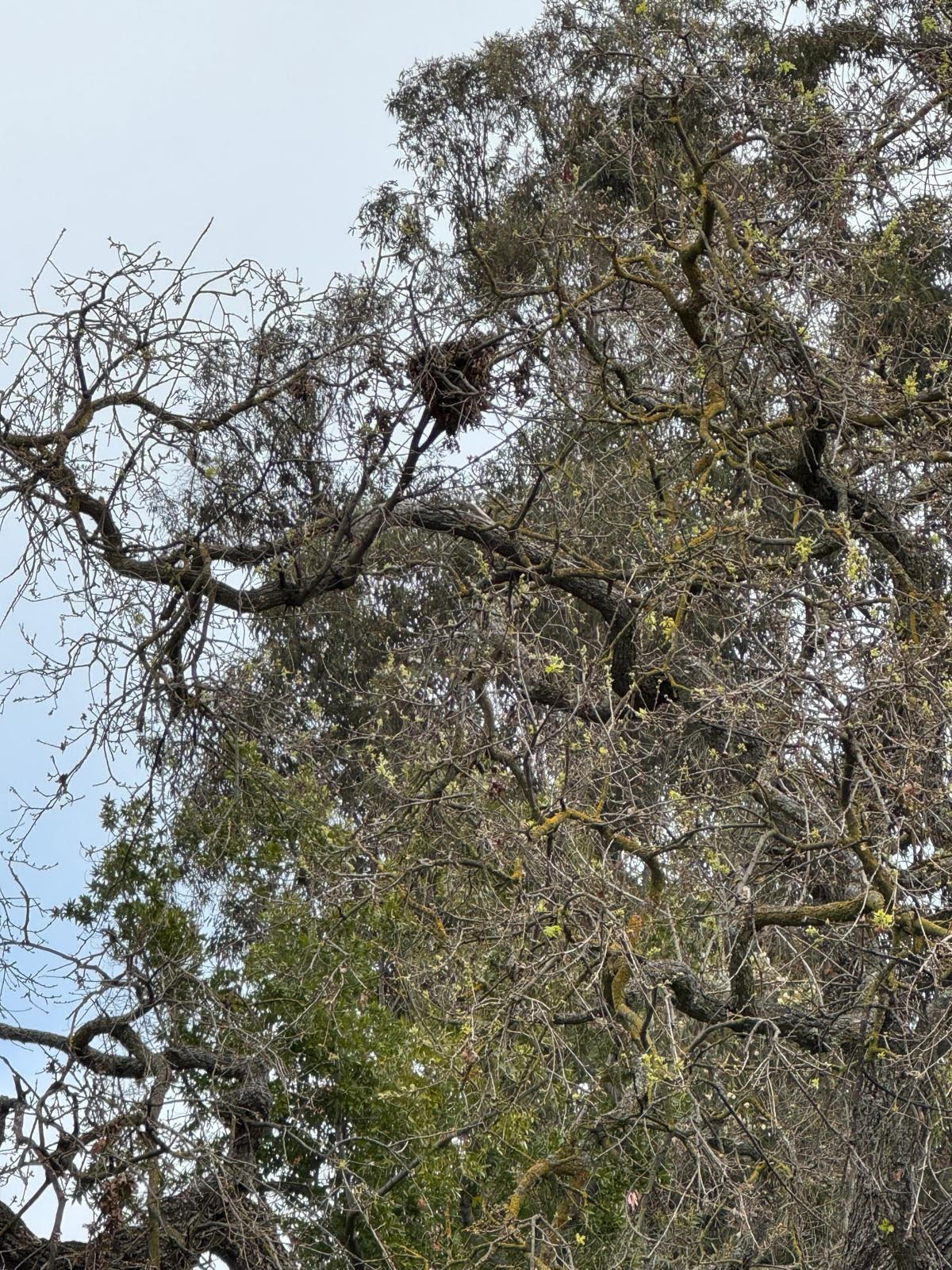
Aarsh took a very pretty photo of a nest among the flowers of a tree. My best guess here is an American Robin (Turdus migratorius) nest but it's hard to tell.
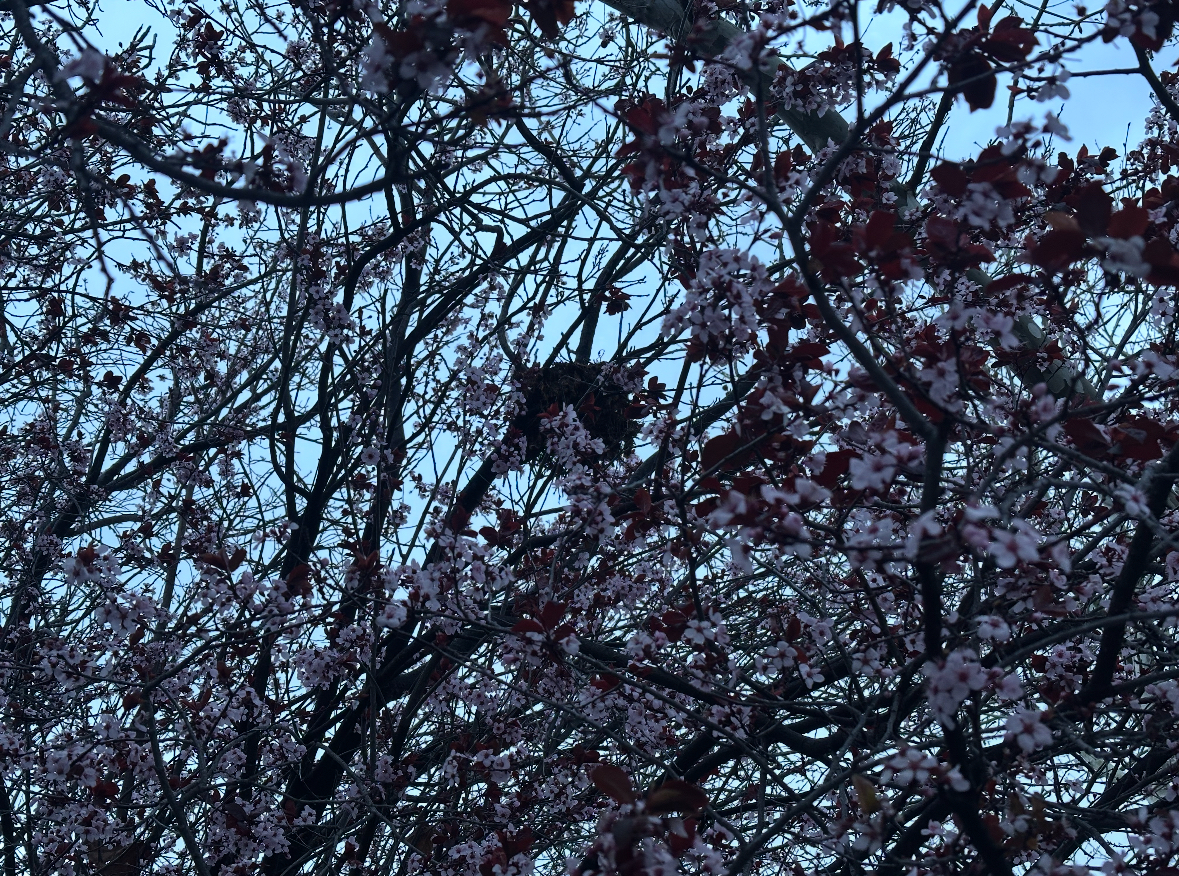
Sandy sent some photos of a Mourning Dove (Zenaida macroura) nesting in a backyard in Walnut Creek. If you look close you can see a couple babies poking their heads out.
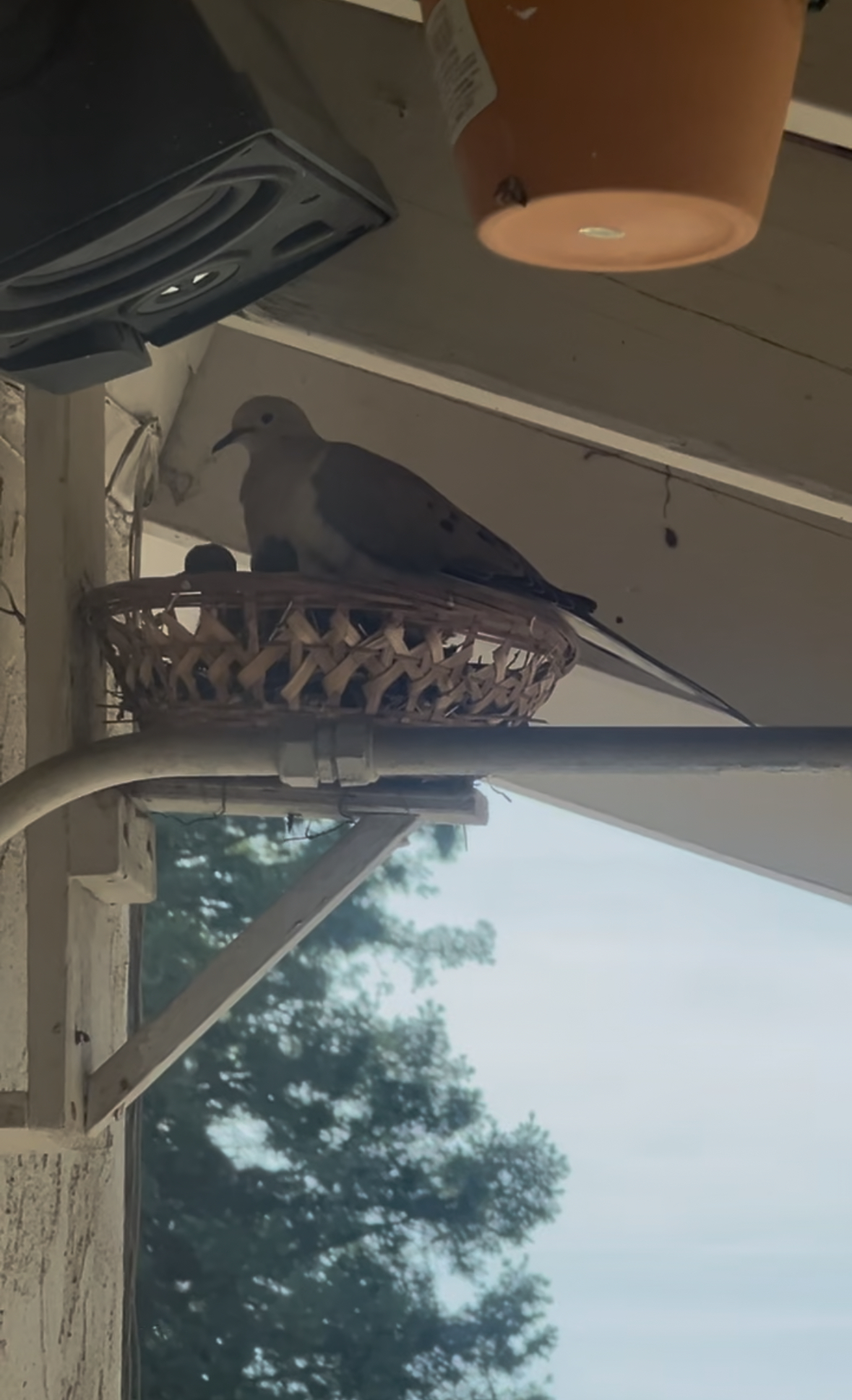
Katlyn and Hannah spotted another dove nest down in Texas. I'm pretty sure this is also a mourning dove.
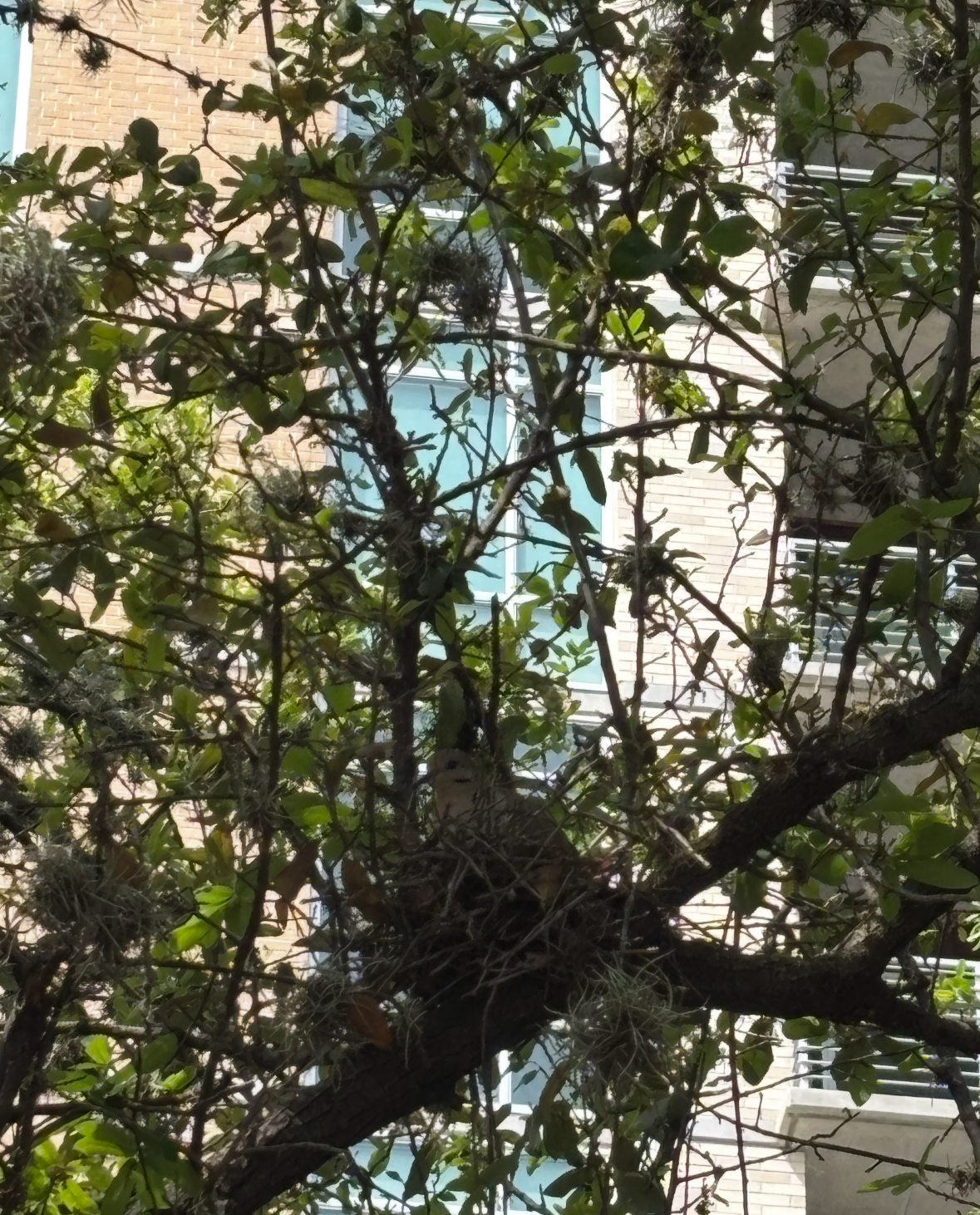
I spotted a nest in Point Reyes. I don't really have a clue what kind of nest it is but it sort of looks like a red-tailed hawk's nest.
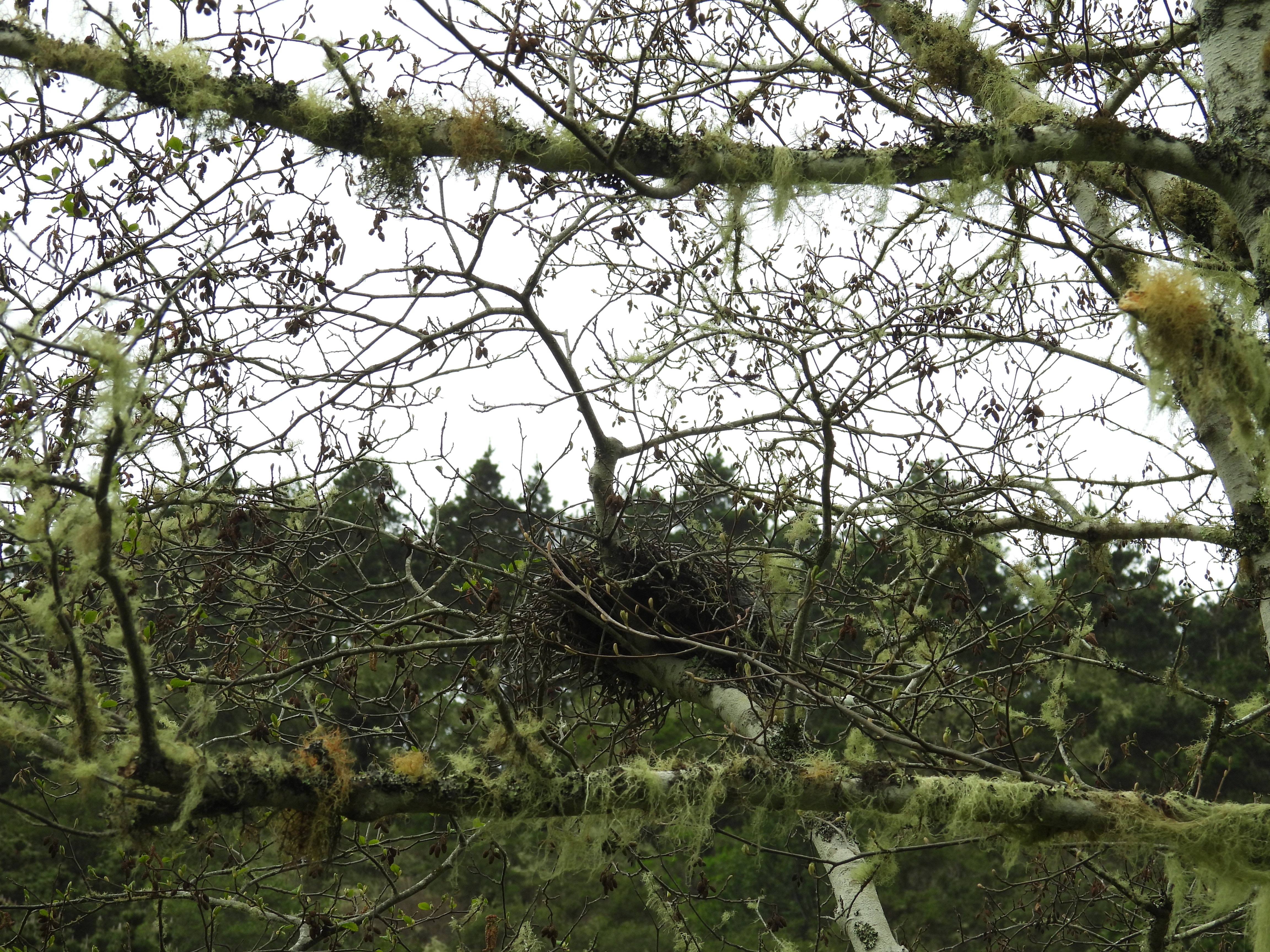
I also spotted some good looking cavities in the trees. I'm thinking this is a good candidate for some woodpeckers or maybe one of the other cavity nesting birds we've talked about before.
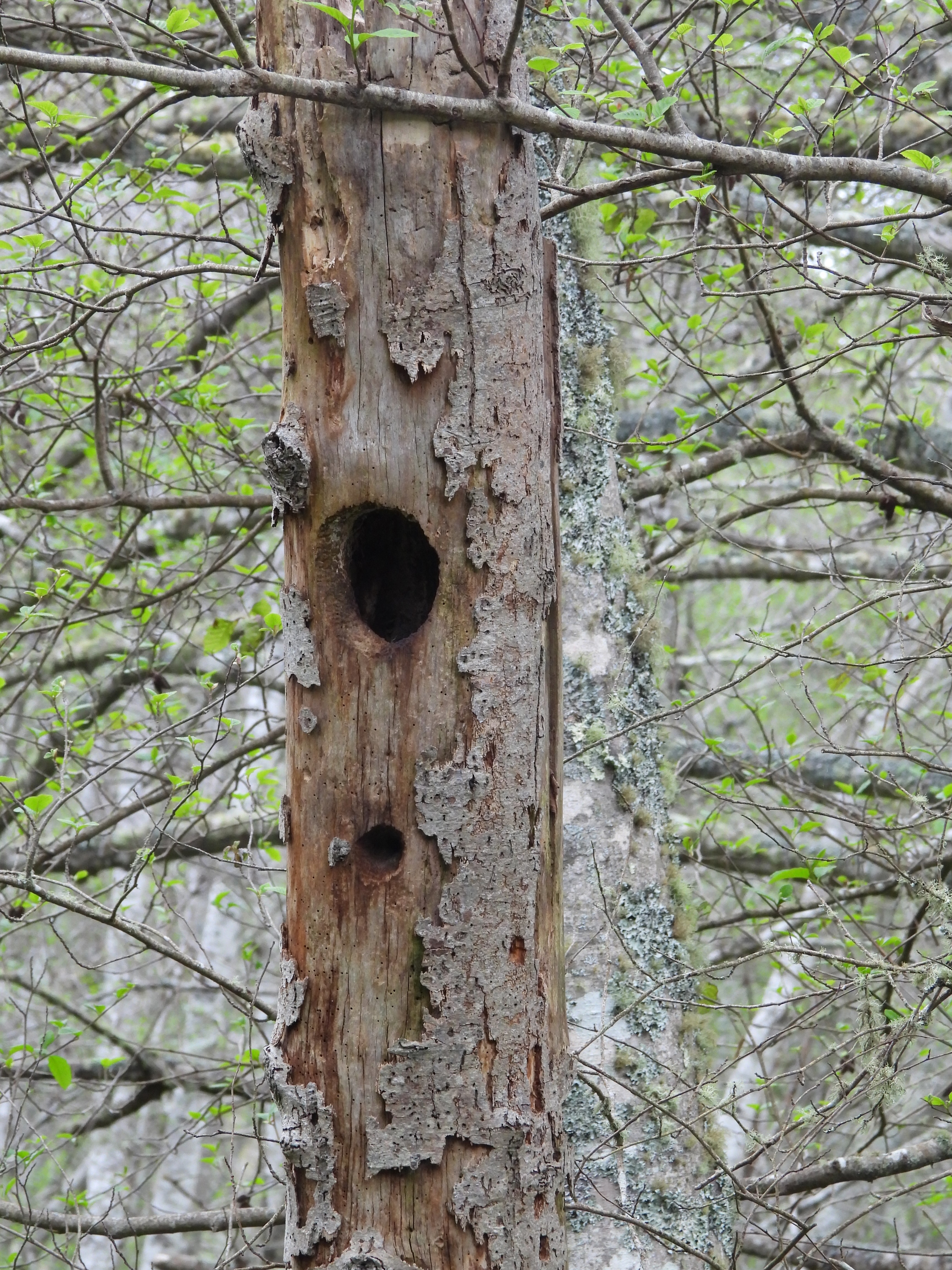
Member Submissions
Thank you to everyone who sent me photos of the birds they saw!
Sarah and Jeff spotted a western bluebird (Sialia mexicana) in their yard in the east bay
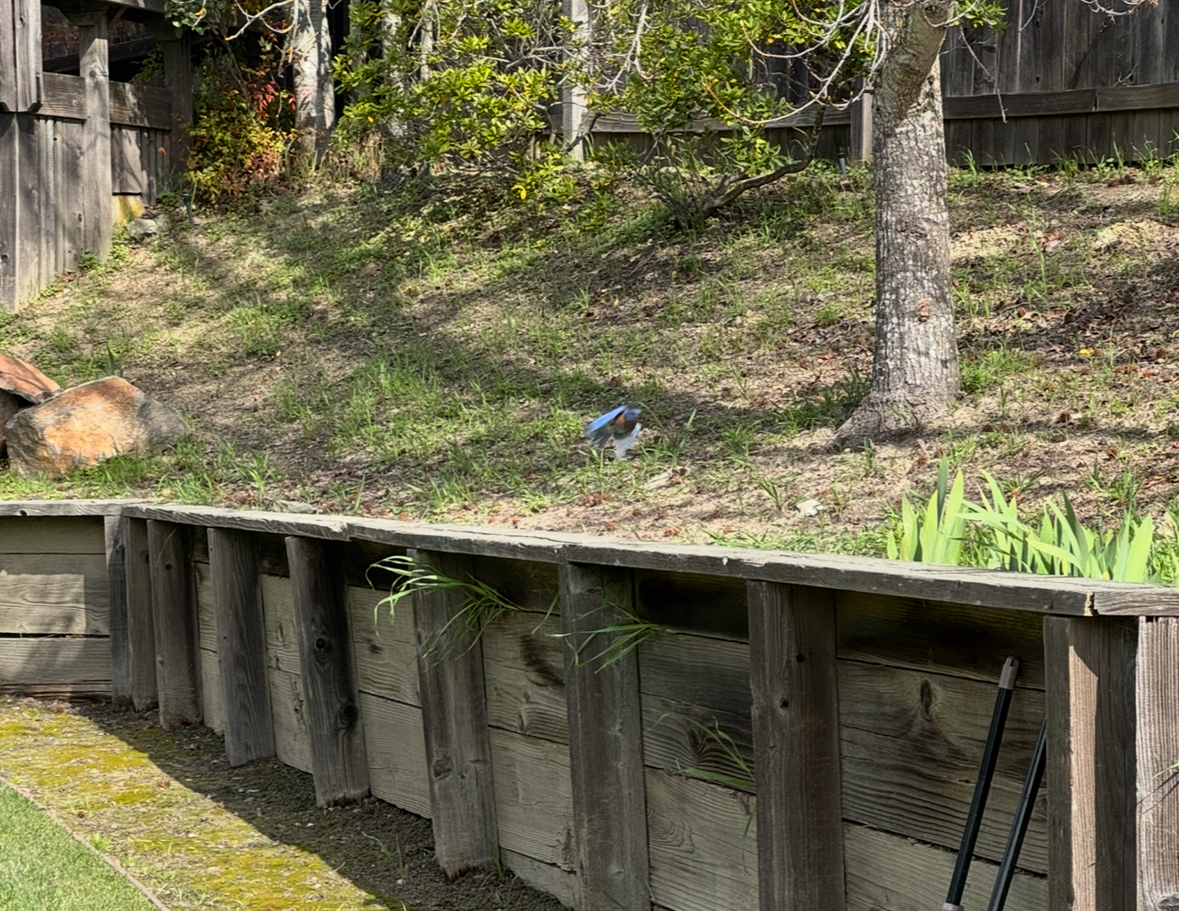
Sarah also spotted a sparrow. It looks like a white-crowned sparrow (Zonotrichia leucophrys)

Erin spotted a yellow-rumped warbler (Setophaga coronata) over in Pleasanton
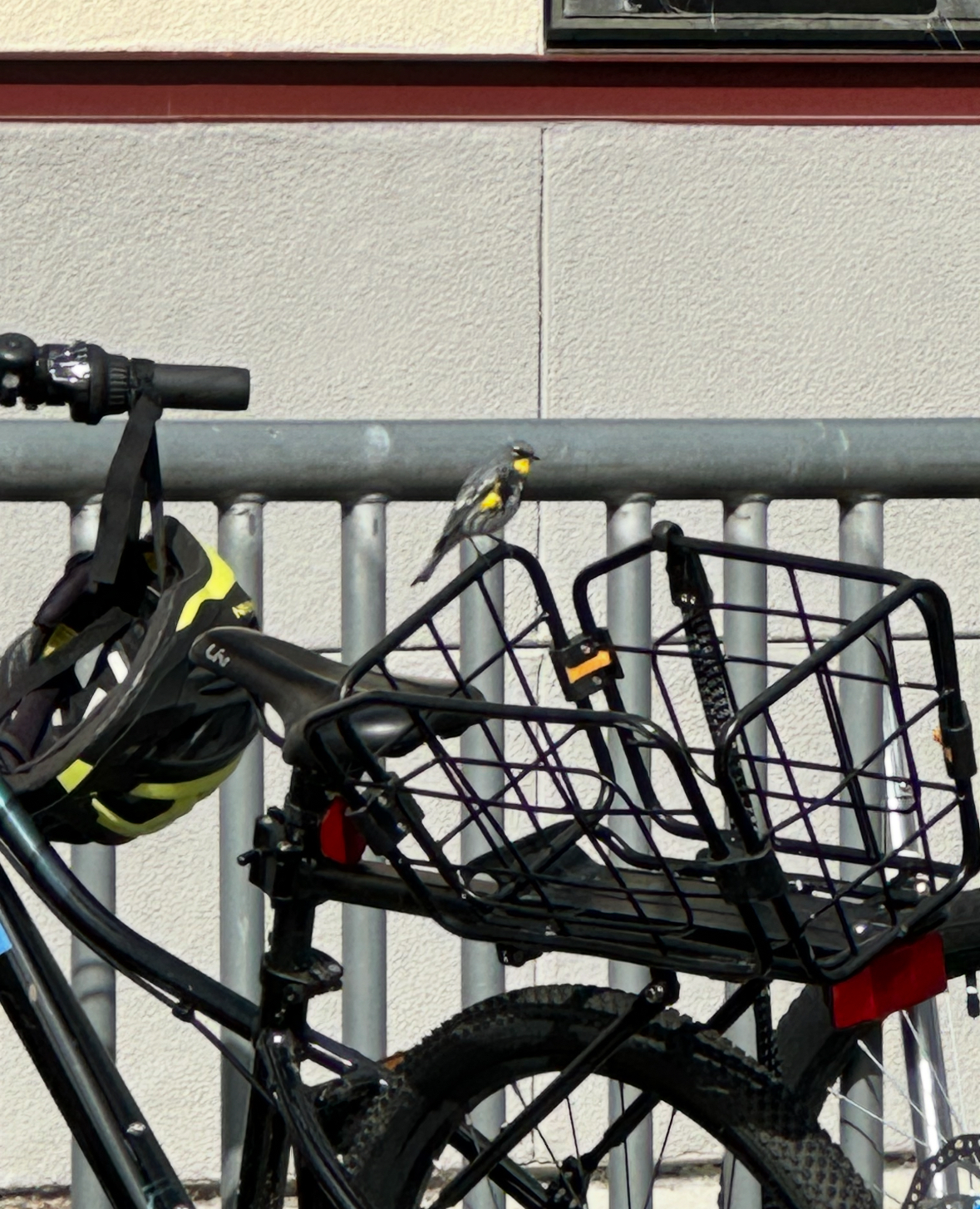
Erin also had the second sighting of a western bluebird (Sialia mexicana) this month. The birds seem to like that bicycle.
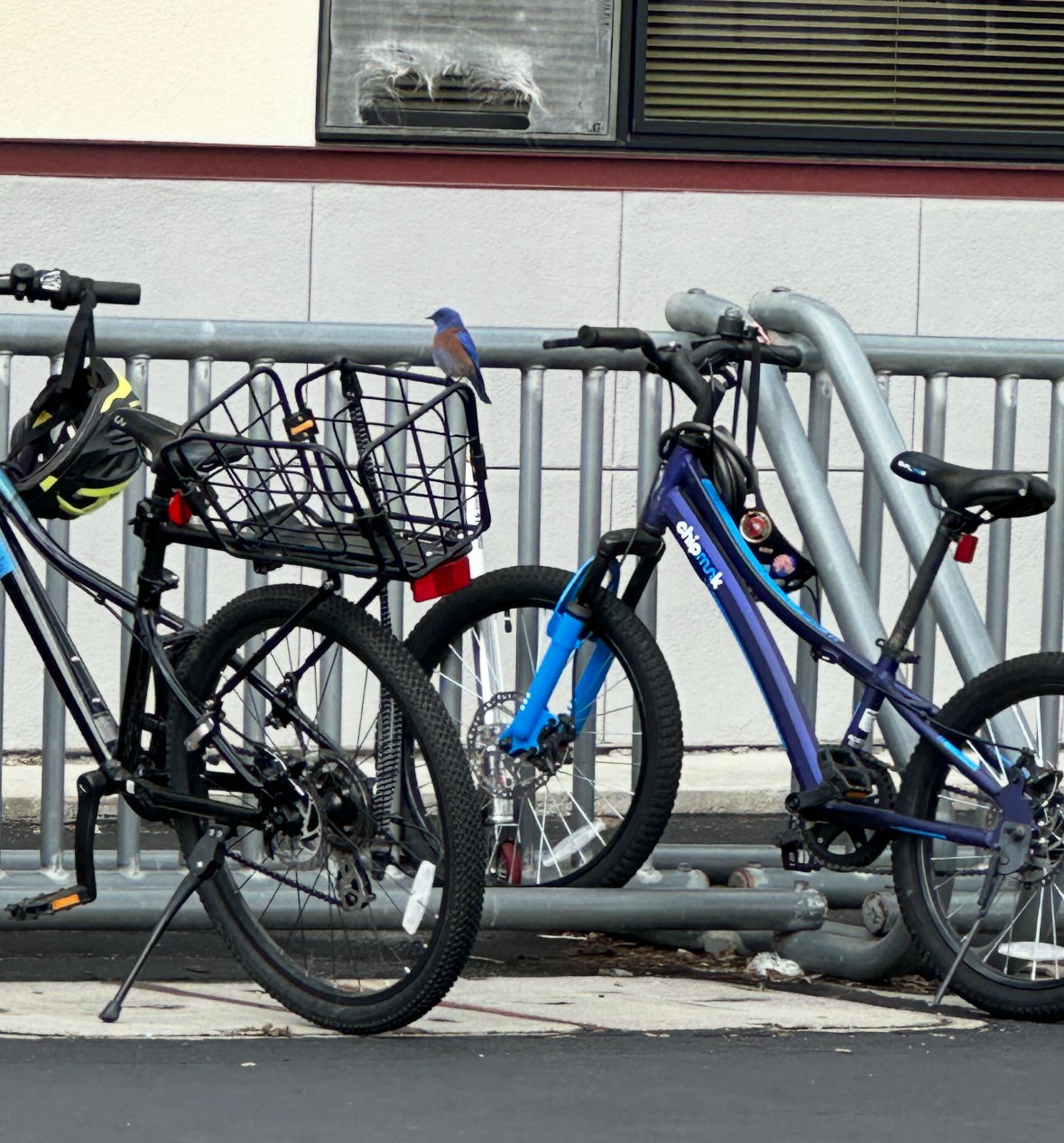
Frank sent in an audio clip of some northern cardinals, common grackles, and bluejays from an evening walk in Rhode Island.
Aarsh spotted what is likely a crow, but I'm supposed to call it a raven, sitting atop a Raven's Place street sign.

Aarsh also spotted a pair of mallards (Anas platyrhynchos). Mallards make cute couples you always see them out and about in pairs or if youre lucky with their ducklings.
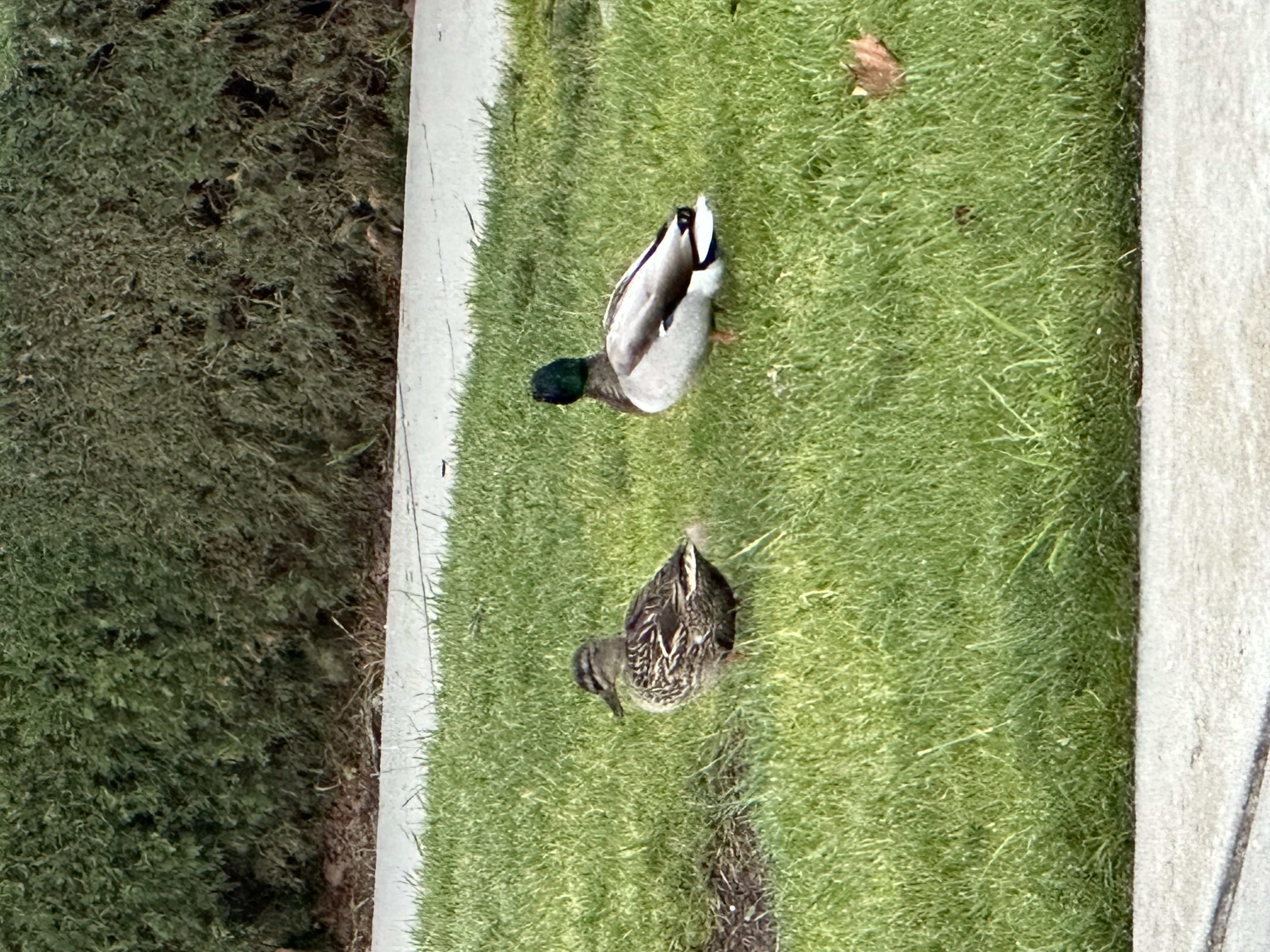
Katlyn spotted a mountain chickadee (Poecile gambeli) up in Tahoe
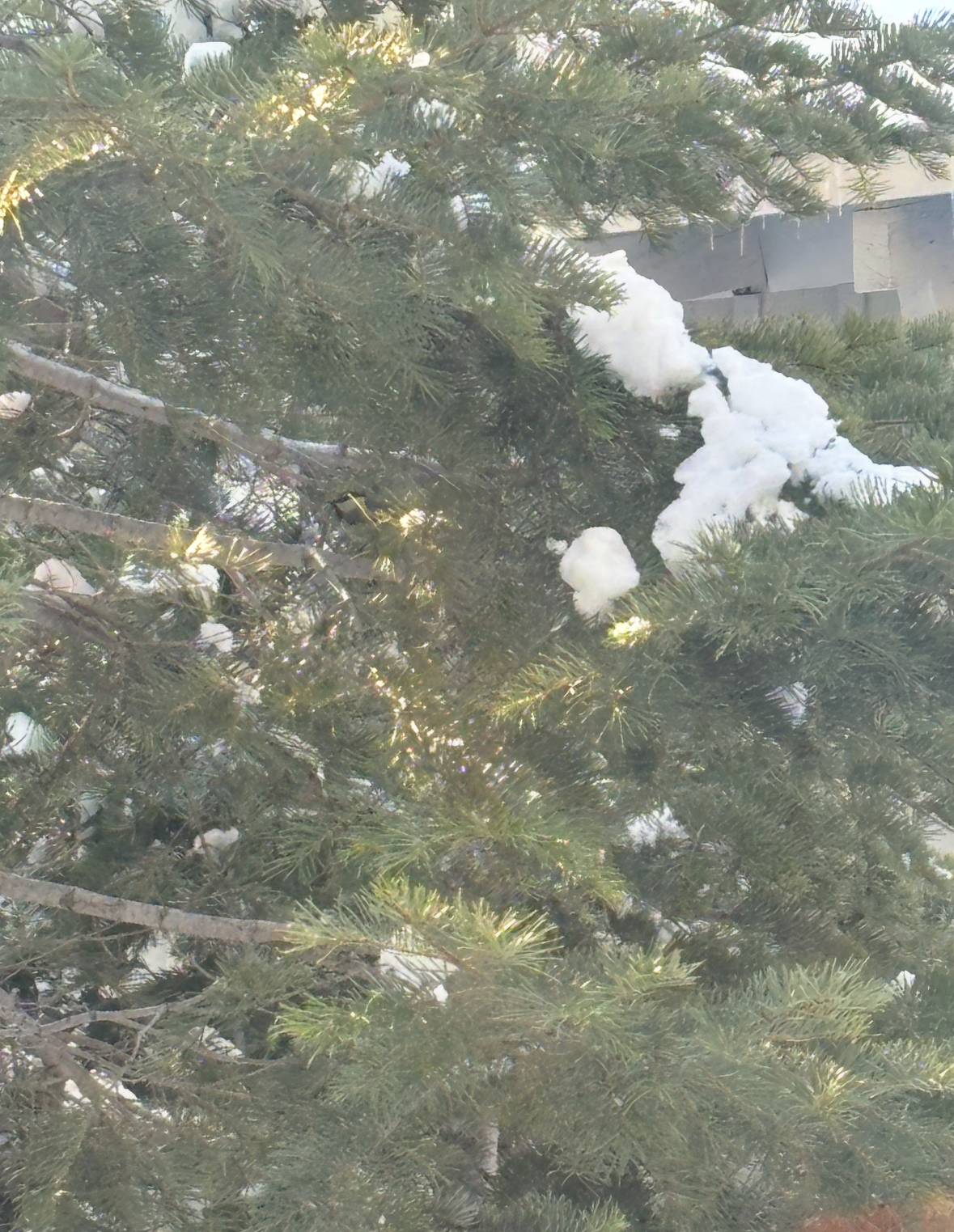
I also saw these chickadees in Tahoe on a couple different ski trips and seeing them while riding a ski lift amidst the snow and in below freezing temperatures was a cool reminder of the resilience of birds. If you recall in the December newsletter when the Chestnut-backed Chickadee (Poecile rufescens) was featured one of the fun facts was that they can utilize nocturnal hypothermia!
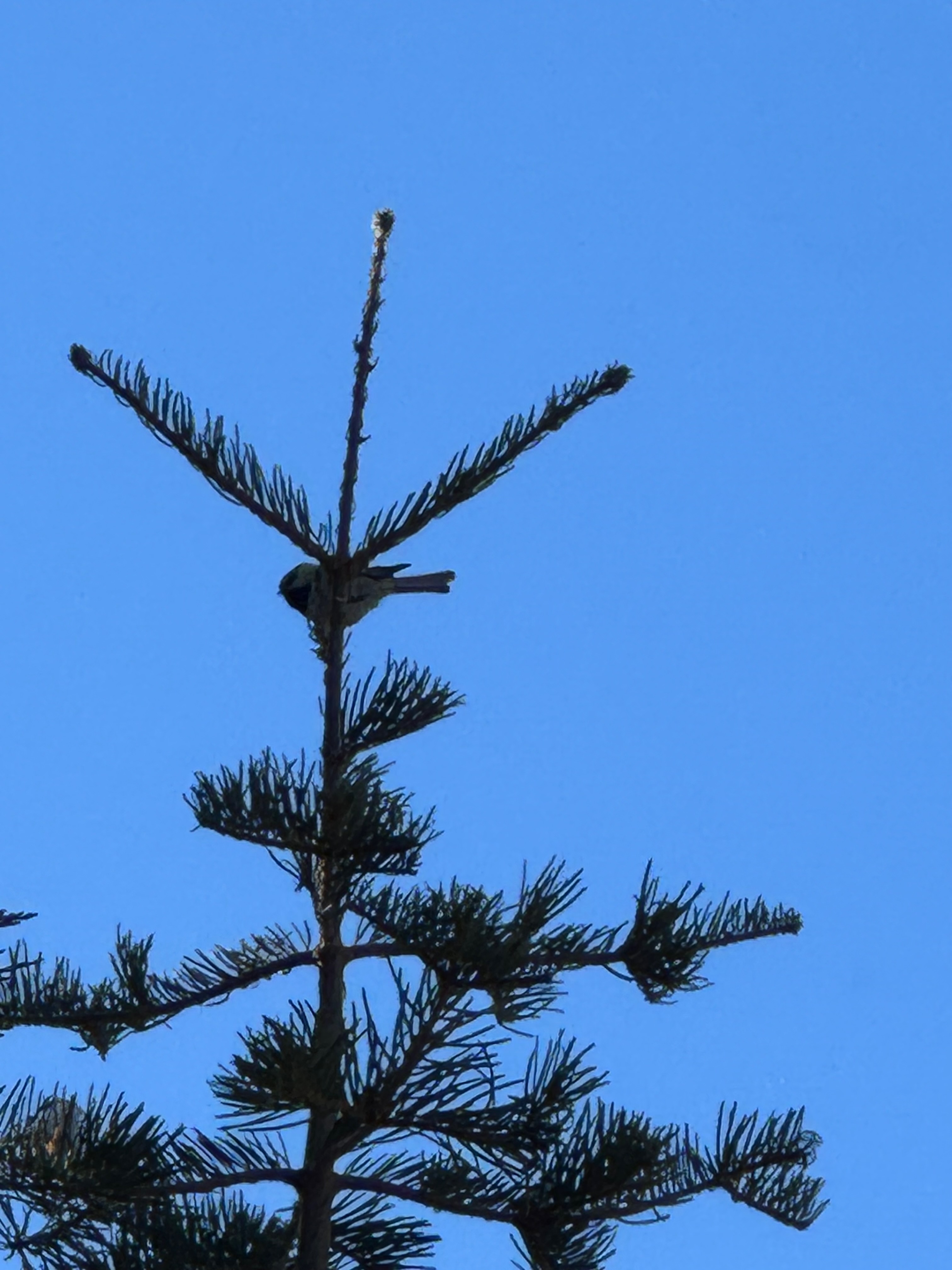
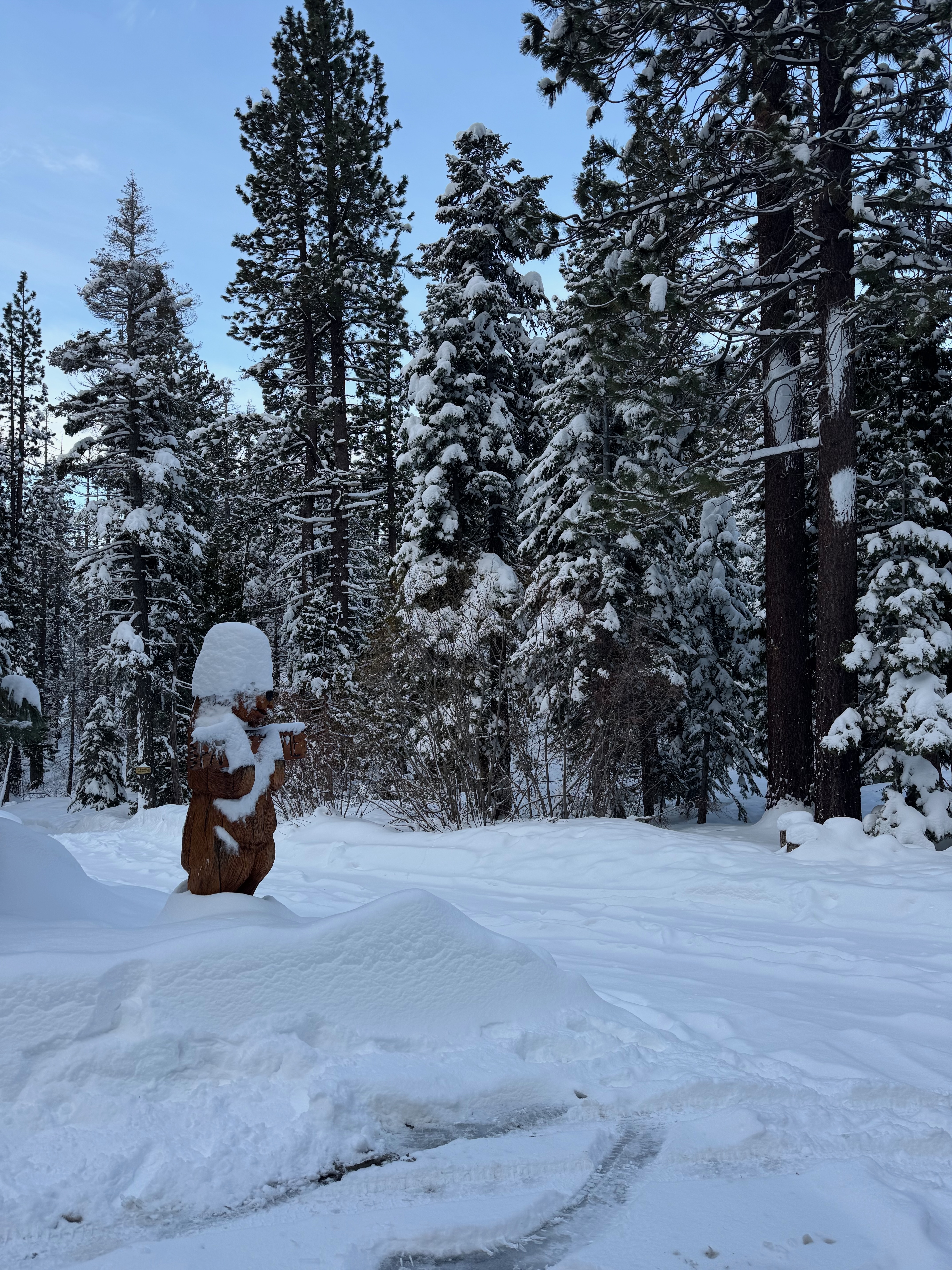
Katlyn also spotted a dark-eyed junco (Junco hyemalis)
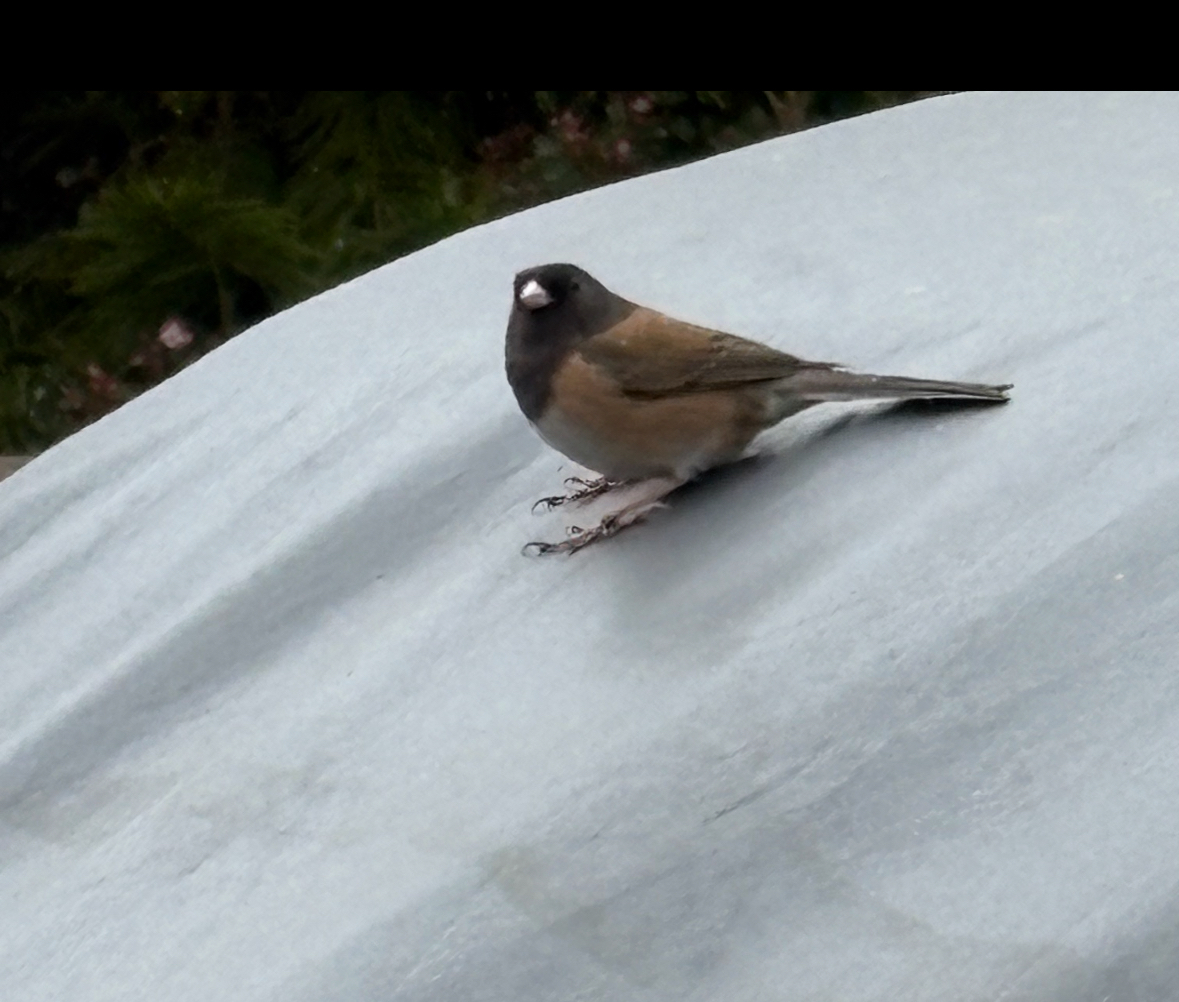
Gus and Anjali sent in a photo of a steller's jay (Cyanocitta stelleri) up in Seattle

and they also sent in a photo of a common merganser (Mergus merganser)
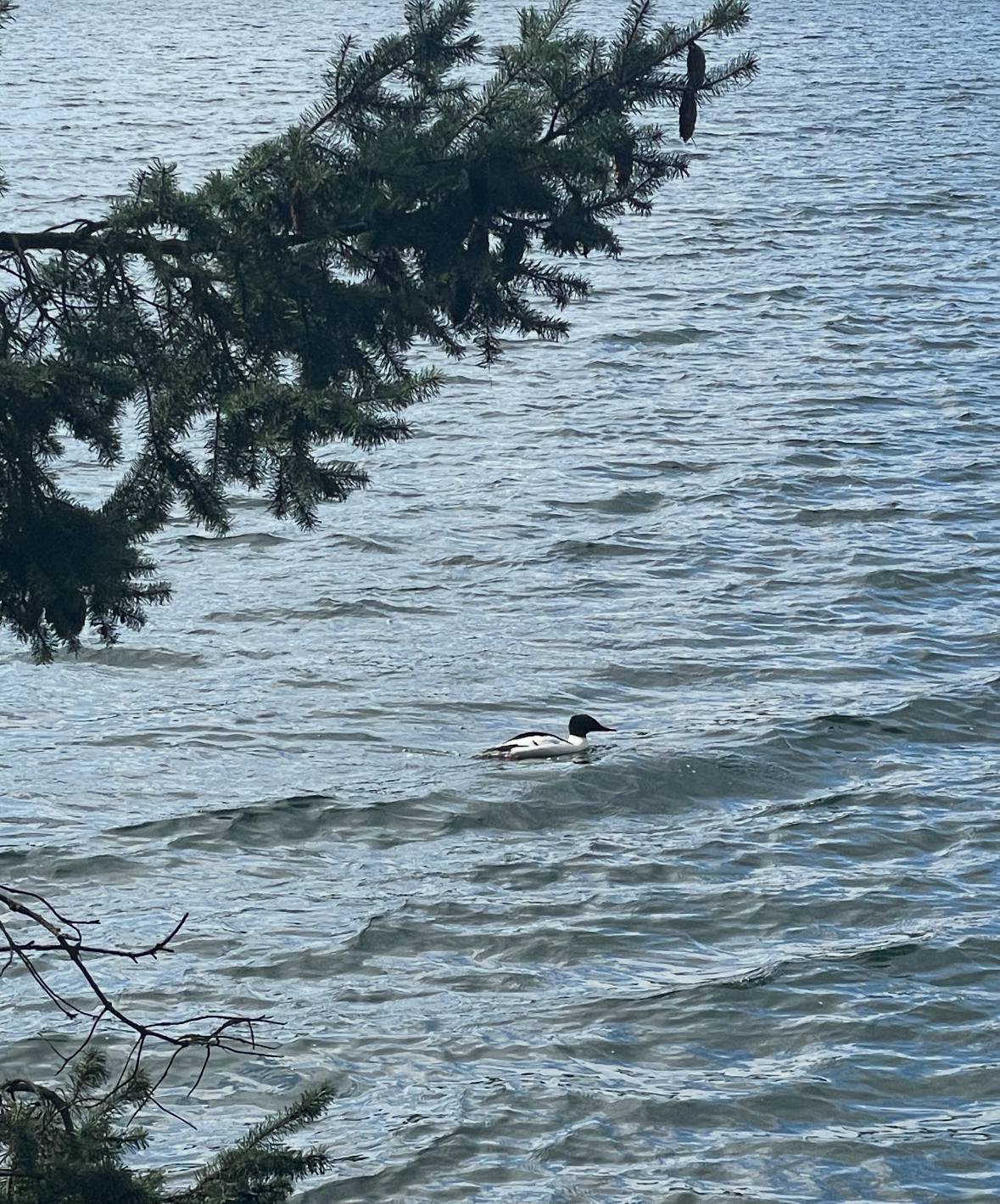
Megan spotted a great egret (Ardea alba) in Mountain View
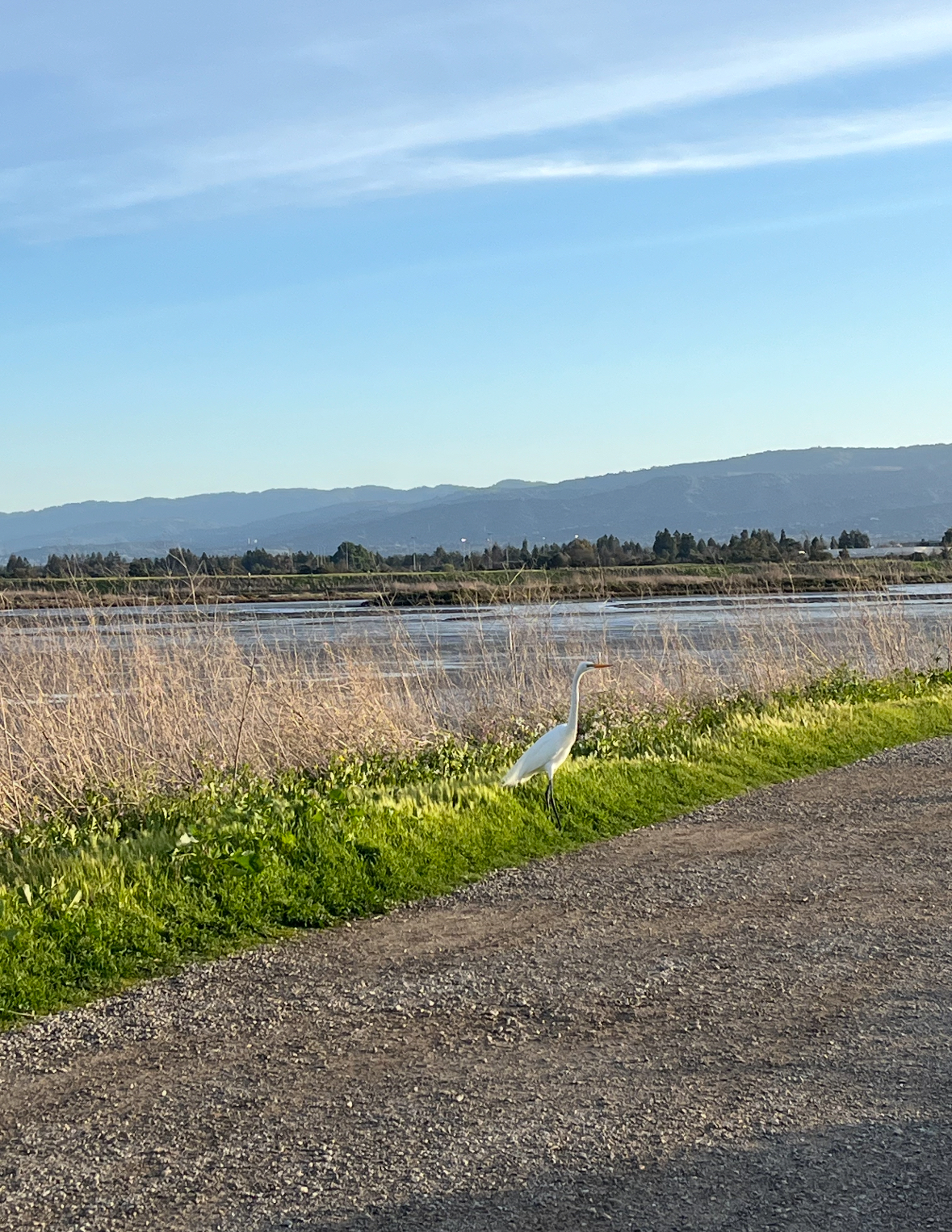
Heidi sent in our first sighting of a bald eagle (Haliaeetus leucocephalus)! The picture was taken in the Hudson Valley region in New York.
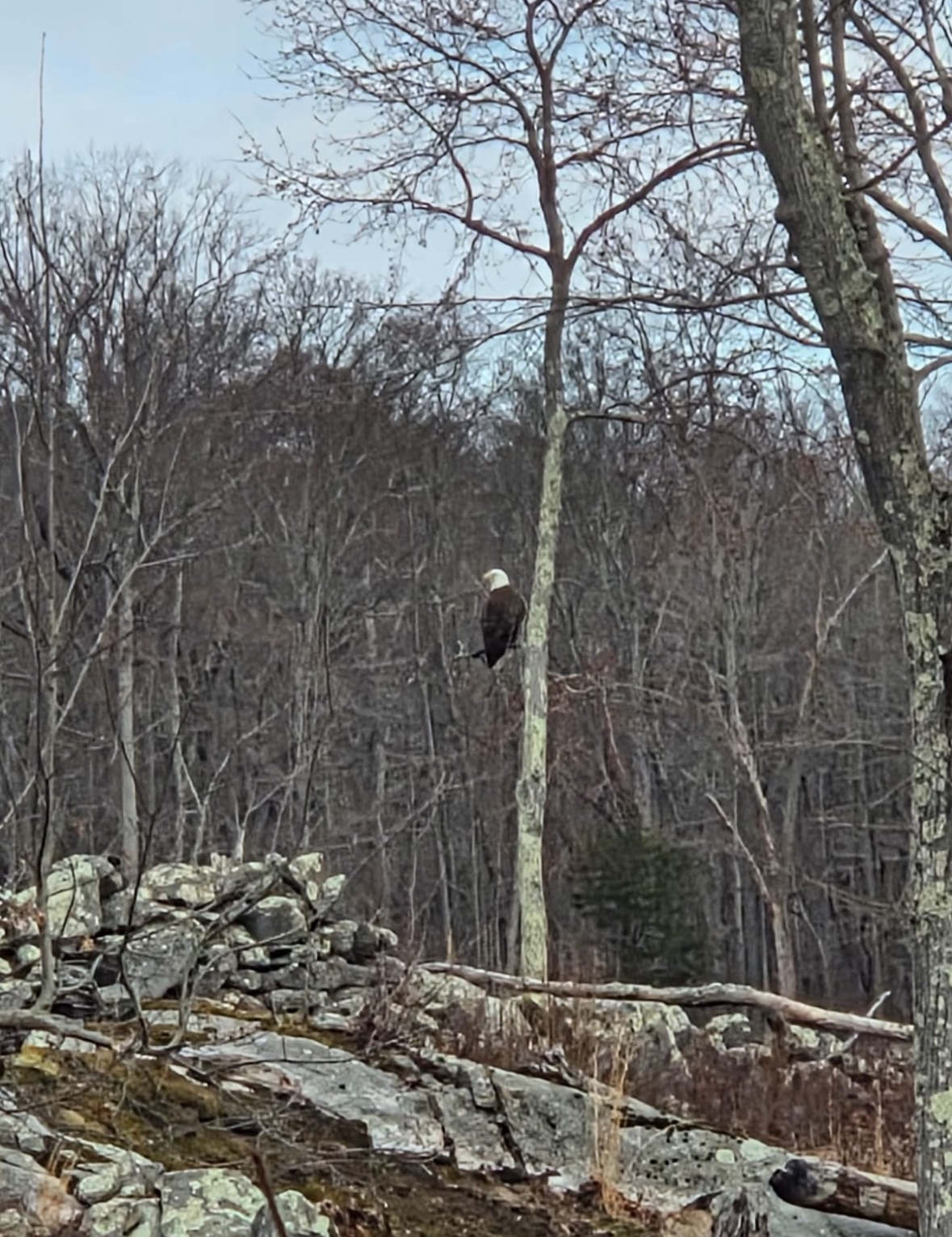
I did quite a bit of birding this month as well. Most of it was in the north bay. I spotted this spotted towhee (Pipilo maculatus) in Point Reyes
Also in Point Reyes I saw a few northern flickers (Colaptes auratus). Side note - Point Reyes is awesome for birding hikes. I'm not including all the pictures but I also saw surf scoters, allens hummingbirds, Chestnut-backed chickadees, and tons more birds.
Just north of the golden gate bridge in some of the marshes I saw lots of birds including these american avocets (Recurvirostra americana)
I also saw some black necked stilts (Himantopus mexicanus)
On the same walk I also saw this Say's phoebe (Sayornis saya)
Maybe my favorite photo of a bird I got was this one of a wrentit (Chamaea fasciata). I heard them all over Point Reyes but I didn't actually spot one until I was walking through chaparral close to half moon bay. They're definitely one of those birds that are easy to hear but hard to see.
Lastly, I was the third person to spot a bluebird when I saw this Western Bluebird (Sialia mexicana) south of sf
Spotlight Bird: Western Bluebird (Sialia mexicana)
There were three different submissions of western bluebirds this month so I thought they would make a good choice as our bird of the month.
Fun Western Bluebird Facts:
- they are cavity nesters, think the cavity picture from the nest section above!, and often follow the large number of woodpeckers who invade burned forests in order to take advantage of the new nest sites.
- pictures often don't do them justice because they can be a very striking blue when you see them in person
- it's very common – in almost half of all nests – for the adult male to not have fathered all the young in that nest. They're not step fathers but the fathers who stepped up.
- in many cultures the bluebird is a symbol of happiness
- in the summer they mostly eat instects and in the winter they mostly eat berries
April Birding Walk
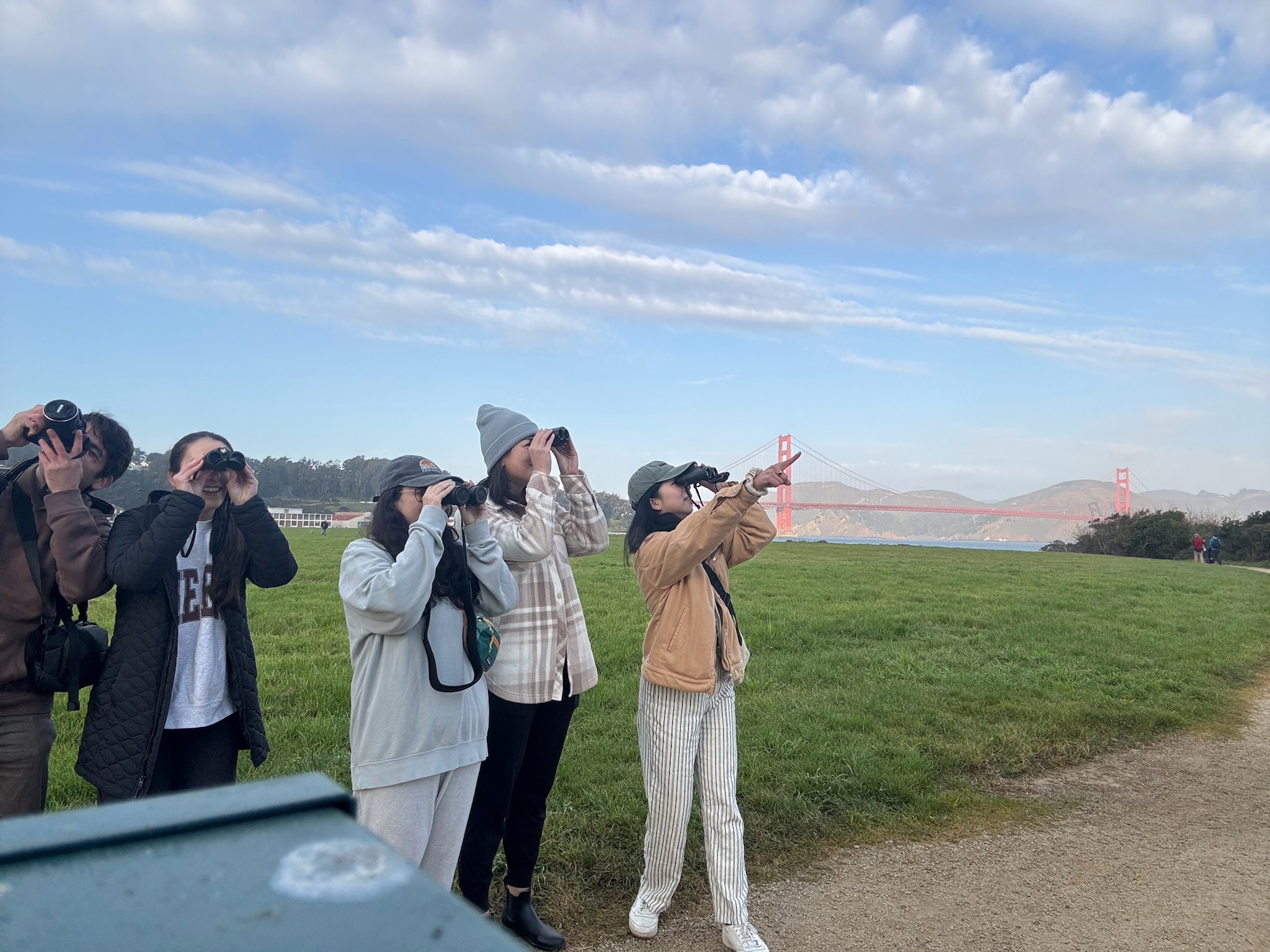
It's time for another birding walk! This time we will leave San Francisco and head just a bit north
to San Rafael. The Las Gallinas Wildlife Ponds is a popular birding birding spot and
I mentioned some of the birds we saw there in the march newsletter.
The birding walk will be this saturday morning April 5th.
Head to the partiful link for more info
Closeout
That's all; happy birding